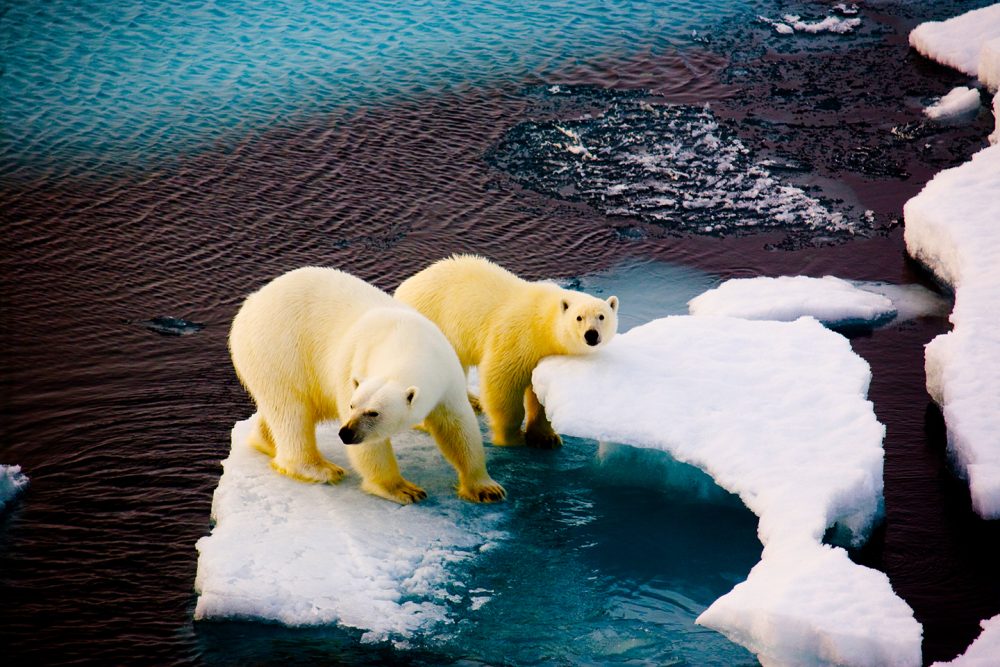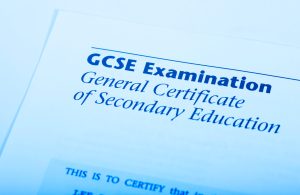The first completely new GCSE since the launch of the new, reformed GCSE qualification framework established in 2017 is to be introduced in 2025 – and it will tackle the breadth of issues around climate change, ecology, wildlife conservation, farming and related issues. The new GCSE will be called Natural History and is likely to include significant coursework and field studies.
The qualification will be available from September 2025 and is expected to be announced by the UK’s Education Secretary, Nadhim Zahawi, this Thursday (21st April 2022), as a central part of the department’s publication of a new “Sustainability and Climate Change Strategy.” This aims to prepare British Education for new industries emerging in the field of Climate Change and Sustainability.
“None of us can be in any doubt just how critical they have become. The new natural history GCSE will offer young people a chance to develop a deeper knowledge and understanding of this amazing planet, its environment and how to conserve it.
The new strategy will help young people develop excellent knowledge of STEM and practical opportunities to improve biodiversity and climate resilience”.
With the launch of the new GCSE in Natural History, there are now a total of 54 new reformed GCSE format subject alternatives/options – of which 23 are language options (including English Language and English Literature). 31 core subjects are available to schools to offer their students – and no school in the UAE offers all of these. Many are not offered at all currently. The full list follows – see concluding section below.
FAQ – Cambridge OCR on the new Natural History GCSE
https://youtu.be/ZJsSYEllC58
Q: Where did the idea for a Natural History GCSE come from?
Mary Colwell approached us in 2019 to discuss her campaign to address a gap in education content in relation to Natural History. Mary had gathered over 10,000 signatures on a UK Parliament Petition from schools, environmental organisations and individuals, in support of a development in the secondary school curriculum. Since then we have been working closely with Mary, the Natural History Museum, The Wildlife Trusts, The Linnean Society, Field Studies Council and others to explore the purpose, design and delivery of such a Natural History GCSE. Visit our website to hear the podcast discussion between OCR Chief Executive – Jill Duffy and Tim Oates, Director of Assessment Research and Development for Cambridge Assessment.
Q: Why have you called this proposed new qualification GCSE Natural History?
We have explored different titles but keep coming back to this one as we believe it captures the relationship between nature, the environment and society.
Q: How do you develop a new GCSE?
We have had conversations with a wide range of stakeholders and have set up a Strategic Advisory Board to start the process of developing a proposal around this new qualification. Our Board has acted as a forum to seek insight and advice in the development of our consultation, which focuses on a draft definition and themes. It is an important step in helping to shape early thinking about what a Natural History GCSE might look like – it will help us refine and shape the content of the qualification, anticipate and overcome difficulties in implementation, and be a litmus test of wide support. This is the first step in a process that will also need to reflect the views of Ofqual, the qualifications regulator in England, and the Department for Education, because the content and design of GCSEs is carefully controlled through legislation. We want to hear views from as many people as possible.
Q: Which Ebacc bucket would a GCSE in Natural History fall into?
The EBacc is a combination of GCSE subjects, including a language, that offer an important range of knowledge and skills to young people. The EBacc is:
- English language and English literature
- maths
- the sciences
- history or geography
- a language
It would be for the Department for Education to determine whether or not a GCSE in Natural History would be part of the EBacc.
Our proposed GCSE is distinctly different from other subjects, although there are elements of science and geography. If a GCSE in Natural History was to be included in the EBacc, the Department for Education would determine which ‘bucket’ it would be part of.
There are a number of GCSEs that are not part of the EBacc which students can study for, often in addition to EBacc subjects.
Q: How would the GCSE fit into a packed curriculum?
It’s important that there is a broad and balanced curriculum, this GCSE would give students a further choice of subject to study. We believe that currently there is a critical gap in the curriculum that a GCSE in Natural History would fill. It would help students to connect with and understand the complexities of the natural world in a way that currently no other GCSE offers them the opportunity to do and the case for this has become even stronger given the current pandemic. The lockdown of the UK in response to the COVID-19 crisis has taught us how important it is to interact with and learn about Natural History, not only for our own mental and physical health, but also for the health of the planet.
Q: What content would be studied?
We want to be sure that a Natural History GCSE would offers something distinctive to existing GCSEs and would be deliverable in schools/colleges. For example we feel it should offer focussed, intensive field study of whole organisms in context., as well as exploration of our relationship with nature, including the way that art, literature and music have been shaped by, and shape, that relationship. This would mean it provides a unique contribution to the national qualifications offer.
Q: How would the GCSE tackle the topic of climate change?
Our consultation findings showed that both adults and young people felt climate change should be an important part of this GCSE. It is up to the Department for Education to determine subject content, but it would be our intention for climate change to be an important element of our GCSE specification. It would be our hope that having studied our GCSE, students would feel better prepared to engage in the climate crisis debate and help protect the natural world.
Q: Would there be coursework?
We think there is a need for this GCSE to have a clearly defined outdoor study/practical activity but it is too early to say what form this would take and it would be subject to Ofqual conditions should this new GCSE be approved.
Q: How would schools be able to factor in field studies in the middle of timetabling for other GCSEs?
We believe that outdoor learning and the opportunity to engage in practical work would be an important part of this GCSE. We know that schools have busy timetables. We would want to make sure that the practical element is accessible to all whether in a rural or urban setting so that it can take place in your local school area, ensuring it is flexible enough to be incorporated into the school timetable. We would welcome any feedback from teachers on this so please do get in contact with any thoughts.
Q: Who would have the opportunity to study this GCSE?
We want it to be available as a choice for all Key Stage 4 students; it will be as relevant to urban schools as it will be to rural schools. It would ill be an additional choice for students, and interest to date has come from all segments of the education system, and all parts of the country. It would engage with the realities of the contemporary rural environment as well as the way that nature plays out in our urban settings.
Q: Who would teach this GCSE?
We know that Biology and Geography teachers would be well placed to deliver this qualification, but we have also had interest from other subject teachers. We are already working with the Natural History Museum, The Wildlife Trusts, The Linnean Society, and the Field Studies Council and other key stakeholders to plan professional development and support to help with the design of programmes and delivery.
Q: When would this GCSE be available?
Any new GCSE needs approval from Ofqual and the Department for Education. We are aiming for first teaching in September 2025.
Full list of all reformed GCSE Subjects currently available and coming: 2017 – 2027
- language options starred
NEW GCSEs introduced in 2015, first sat in 2017
- English language*
- English literature*
- Mathematics
NEW GCSEs introduced in 2016, first sat in 2018
- Art and Design
- Biology
- Chemistry
- Citizenship Studies
- Combined Science
- Computer Science
- Dance
- Drama
- Food Preparation and Nutrition
- French*
- Geography
- German*
- Classical Greek*
- History
- Latin*
- Music
- Physical Education (including short course)
- Physics
- Religious Studies (including short course)
- Spanish*
NEW GCSEs introduced in 2017, first sat in 2019
- Ancient History
- Arabic*
- Astronomy
- Bengali*
- Business
- Chinese*
- Classical Civilisation
- Design and Technology
- Economics
- Electronics
- Engineering
- Film Studies
- Geology
- Italian*
- Japanese*
- Media Studies
- Modern Greek*
- Modern Hebrew*
- Panjabi*
- Polish*
- Psychology
- Russian*
- Sociology
- Statistics
- Urdu*
NEW GCSEs introduced in 2018, first sat in 2020
- Biblical Hebrew*
- Gujarati*
- Persian*
- Portuguese*
- Turkish*
NEW GCSEs being introduced in 2025, to be first sat in 2027
- Natural History
But….will there even be GCSE’s in 2027?
For many, the announcement of a serious new GCSE in climate change cannot come a moment too soon – and provides a strong evidential base for the argued strength of a British education system able to respond to changes in a rapidly evolving world.
For many others, however, at a time in which all students are expected to remain at school until 18 years – and the target is, then, for 70% of students to graduate to university, and 30% to apprenticeships afterwards, the GCSE qualification has run its course, is out-dated and simply unnecessary. More on this here.
Whatever happens in British education over the next decade, one thing is surely certain. Climate change must be part of the discussion – and education that treats it on the periphery is an education that is sorely out of touch and running dangerously close to being part of a problem that many young people see as being deliberately whitewashed away in the name of our current generation’s short term prosperity. It is the next generation that will pay the price for the decisions that we make in education today.
This is a rapidly developing story and will be updated.
© SchoolsCompared.com. 2022. FAQ – OCR/Cambridge. All rights reserved.






























































Leave a Response